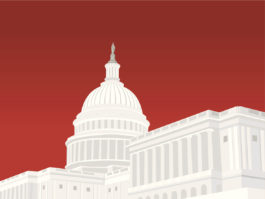We’re now more than two weeks out from the enactment of the Coronavirus Aid, Relief, and Economic Securities Act (CARES Act), legislation that put $2.2 trillion in relief funds into action to counteract the economic hardships resulting from the COVID-19 crisis. The Act is lengthy and covers a significant amount of information. To ensure our clients know exactly what this legislation provides, we want to break down this legislation further and take a look at some provisions that specifically target businesses.
Our focus here is on modifications made for net operating losses, for the credit for prior year minimum tax liability of corporations, and for the limitation on business interest, as well as on the technical amendments made to the 2017 Tax Cuts & Jobs Act (TCJA) legislation regarding qualified improvement property.
Modifications for Net Operating Losses
To increase liquidity for businesses, temporary modifications have been made to the rules set for Net Operating Losses (NOLs). NOLs were made subject to an 80% taxable income limitation under the TCJA legislation, which also disallowed carrying back NOLs to reduce income in a prior year. Under the CARES Act, NOLs arising in a taxable year beginning after December 31, 2017, and before January 1, 2021, may be carried back over the preceding 5 taxable years. For NOLs arising in a taxable year that began in 2017 and ended during 2018, the carryback period is two years. There is an election to forego, should you decide to do so. However, with the maximum corporate tax rate for tax years ending before 2018 at 35%, as opposed to the current 21%, this may be an attractive option for many businesses. Ultimately, this provision allows corporate taxpayers to offset taxable income for 2018, 2019, and 2020, dollar-for-dollar, using NOLs. It is noteworthy to mention that the NOL and carryback provisions not only apply to corporations, but individual taxpayers as well.
The 80% of taxable income limitation has also been suspended through the CARES Act for tax years beginning before January 1, 2021. NOLs carried forward from the 2018, 2019, and 2020 to taxable years beginning after December 31, 2020, would still be subject to the 80% of taxable income limitation.
These modifications to the rules for NOLs do not allow taxpayers that are Real Estate Investment Trusts (REITs) for a given year to carry back NOLs to any preceding tax year. Nor are carrybacks allowed to years when the taxpayer was a REIT for NOLs incurred during a year when that taxpayer is not a REIT.
IRC Section 965 set the rules for a transition tax requiring U.S. corporate shareholders to repatriate untaxed foreign earnings of certain specified foreign corporations. Although Section 965 income was previously included as income during the five-year carryback period, the CARES Act specified that Section 965 income will not be considered in determining the amount of an NOL, nor in considering the amount of taxable income that may be reduced by an NOL carryback. You may also elect (no later than your filing deadline for the first taxable year ending after the enactment of the CARES Act) to exclude all years in which you included Section 965 income from the five-year carryback period.
Modification of Credit for Prior Year Minimum Tax Liability of Corporations
The CARES Act temporarily accelerates the refundability of alternative minimum tax credits for Corporations under Section 53(e). Corporate taxpayers may make an election to take the entire refundable credit amount as of December 31, 2018, by filing Form 1139 Application For Tentative Refund pursuant to Section 53(e)(5).
Modifications of Limitation on Business Interest
Beginning in 2018, the TCJA limited the business interest deduction to 30% of the taxpayer’s Adjusted Taxable Income (ATI). For 2019 and 2020, the CARES Act increases that limitation to 50% for corporations. Partnerships are not eligible for the increase for the 2019. However, in 2020, partners (with allocated disallowed interest from partnerships in 2019) will be able to deduct 50% of the limited interest without restriction. The remaining 50% will be subject to standing legislation. These partners do have the ability to elect out, should they so choose, for taxable years beginning in 2020.
Additionally, the CARES Act allows businesses to use their 2019 adjusted taxable income to calculate their 2020 business interest limitation, which can increase their deduction for interest expense. This is still permitted for short taxable years in 2020. The 2019 adjusted taxable income is simply prorated.
Revenue Procedures 2020-22 provides additional guidance whereby an entity that made an election to be an electing real property trade, or business or an electing farming business for purposes of 163(j), may withdraw their election and apply the modifications if beneficial.
Technical Amendments Regarding Qualified Improvement Property
The CARES Act also brings about a highly-anticipated technical correction to the TCJA legislation regarding Qualified Improvement Property (QIP). The Act includes QIP within the realm of property qualified for bonus depreciation, enabling much-needed write offs for business improvement costs. The Act changes the depreciable life of QIP from 39 years to 15 years, making it eligible for 100% bonus depreciation through 2022. This technical correction is retroactive, and is now in effect back to January 1, 2018.
Stay tuned…
We are committed to keeping our clients and community up-to-date on pertinent legislative changes throughout the COVID-19 crisis. We will be publishing articles on numerous sections within the CARES Act in the coming weeks. We welcome you to contact us for additional information, or with questions on these business provisions and related matters.
by Matthew Pore, CPA





